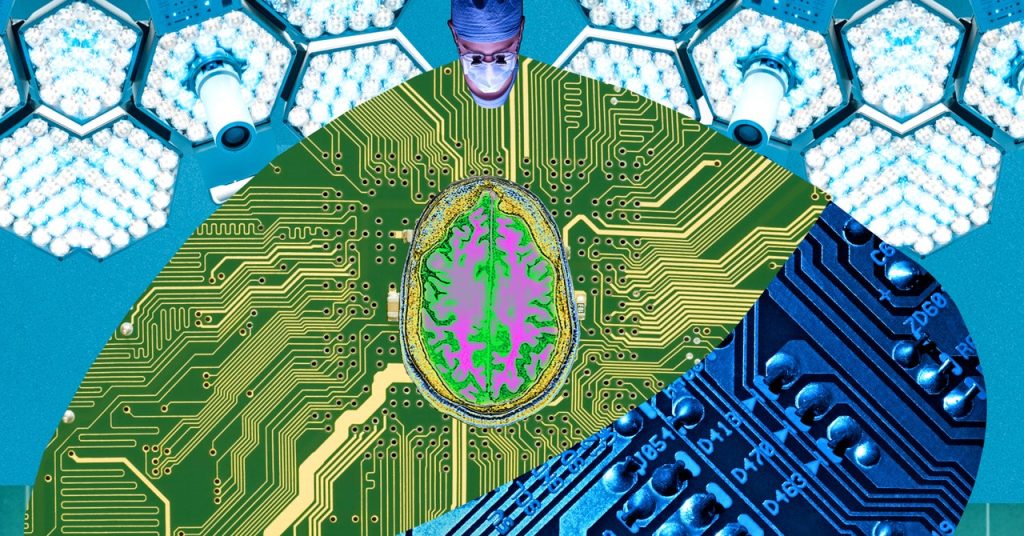The Future of Brain-Computer Interfaces: A Neurosurgeon’s Perspective
The Promising Potential of BCIs
Brain-computer interfaces (BCIs) have the potential to revolutionize the way we interact with the world around us. As these technologies advance, the role of neurosurgeons in implementing them will become increasingly important. Shahram Majidi, a neurosurgeon at Mount Sinai Hospital in New York, has been at the forefront of this field, operating in clinical trials for a BCI called the Stentrode.
I think that’s the future.
A Minimally Invasive Procedure
The Stentrode surgery is a minimally invasive procedure that does not require opening the skull or violating the anatomy of the brain. Instead, the device is deployed into a blood vessel in the brain, a procedure that Majidi has performed thousands of times for other purposes. However, the precision required for the Stentrode implantation is unparalleled, as the device must record specific signals from a very specific location in the brain.
Empowering Patients with Severe Disabilities
The patients enrolled in these trials are severely disabled, often paralyzed due to conditions like amyotrophic lateral sclerosis (ALS). For these individuals, BCIs offer a newfound sense of independence and connection to the outside world. After just two weeks of training, patients can use the device independently, allowing them to text and use their cell phones using only their thoughts.
The patients are passionate about advancing the science, to help others like them in the years and decades to come. That is really humbling to witness.
The Growing Demand for BCI Technology
As awareness of BCI technology grows, so does the demand for these life-changing devices. Majidi’s clinic receives numerous phone calls every week from individuals seeking evaluation for a BCI. While not every neurosurgeon will specialize in this field, it is expected that several centers of excellence will emerge across the country in the coming years.
The Future of BCIs: Exploring New Possibilities
As BCI technology continues to evolve, researchers and neurosurgeons will explore new applications, such as treating patients with intractable seizures, depression, mood disorders, and even eating disorders. The devices themselves will also undergo significant changes, adapting to the growing needs and understanding of the brain’s functions.
A decade from now, BCI devices will look very different from what we have today. This is just the beginning.
The future of brain-computer interfaces is bright, and neurosurgeons like Shahram Majidi are at the forefront of this exciting field. As the technology advances and becomes more widely available, countless lives will be transformed, offering hope and independence to those who need it most.

5 Comments
If brain-computer interface surgery doesn’t scream “I’m living in a sci-fi novel,” I don’t know what does!
Imagine telling your brain surgeon to “just plug in” – the future is wild!
Neurotech’s cutting edge is finally here, and it looks like science fiction is losing its fiction tag!
Cove: Seems like neurotech’s about to give ‘mind-blown’ a whole new meaning, doesn’t it
Time to update that LinkedIn profile, brain-computer interface surgeon just got added to the dream job list!